“Dunan Hill” – another previously unpublished 3/4 gem by John McLellan, Dunoon
Only a few weeks ago, pipes|drums published for the first time “Lady Inverclyde,” a gorgeous nearly-lost retreat march from the creative genius John “Jock” McLellan of Dunoon, Scotland.
And now, we’re pleased to bring readers “Dunan Hill,” another previously unpublished 3/4 march by the great piper, whose 150th birth-year will be celebrated in various events in Dunoon and Glasgow this August.
![[Click to enlarge]](https://www.pipesdrums.com/storage/2025/05/Dunan_Hill_Jock_McLellan.jpg)
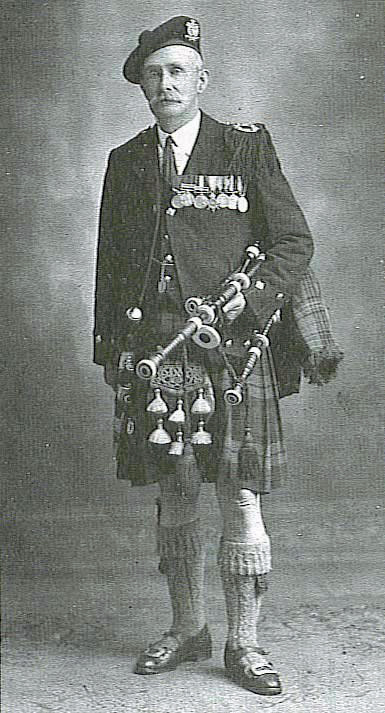
The brilliance is an ability to hold attention and interest in a memorable, song-like structure.
The manuscript is almost certainly in McLellan’s hand, as the handwriting matches other examples.
There are a few Dunan hills in Scotland, but the one that moved McLellan to write a tune is almost certainly Dunan Hill near Dunoon. Also known as the Camel’s Hump, it offers spectacular views of the town and Loch Loskin, the loch that inspired McLellan to compose “Lochanside,” often cited as the most outstanding composition in the Highland piping repertory.
Notably, McLellan scribes his tune with “pick up notes” rather than putting them at the final bar of each part, which is almost always a feature of 3/4 retreat march manuscripts.
Also of note is McLellan’s inclusion of a copyright notice, indicating that he was conscious of the value of his creative property. He seems to warn others not to copy “Dunan Hill,” lay claim to its composition, or reproduce it without due credit or permission – all legal improprieties that composers and songwriters suffer today.
“The Road to the Isles” (originally titled “The Bens of Jura”) is by far McLellan’s most-performed composition. Whether he received the copious royalties legally due to him or his estate is uncertain. The Vaudevillian variety show entertainer Sir Harry Lauder made “The Road to the Isles” famous worldwide.
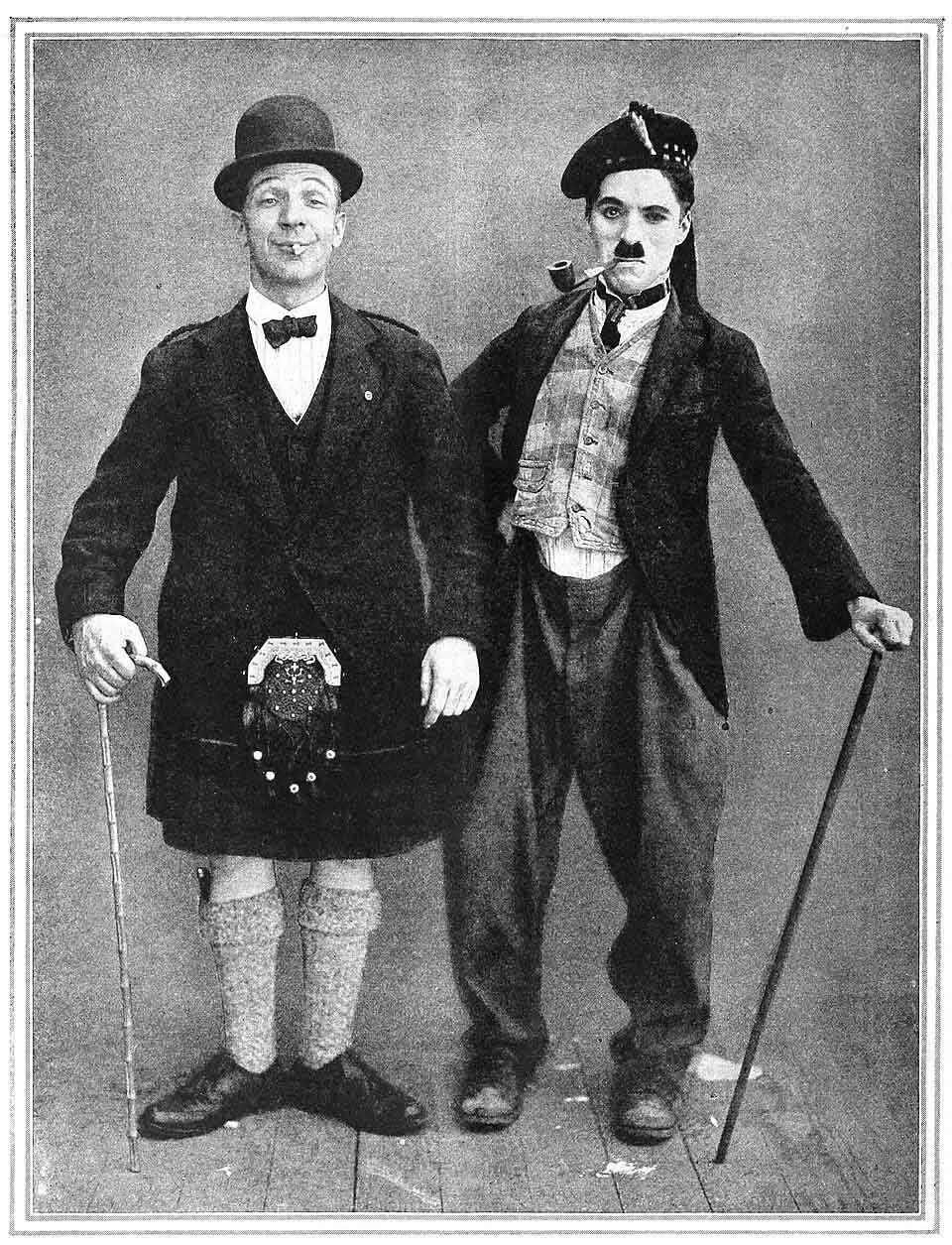
Lauder recorded “The Road to the Isles” as a song with now well-known lyrics set to McLellan’s melody. M. Kennedy Fraser is credited with the arrangement of the composition, which would earn royalties in a split with McLellan. She included the tune in Volume 1 and 2 of her Songs of the Hebrides collection. In each book, she lists herself as the composer, Volume 1 featuring “The Bens of Jura” (1909) and Volume 2, “The Road to the Isles” (1917). This was incorrect, as she would have collected composer royalties due to McLellan.
Sir Harry Lauder’s name is listed on the original shellac disc c.1925 as the performer, not the composer. Lauder would be entitled to mechanical royalties as the performer. Still, McLellan, the intellectual property owner, would be legally entitled to a far greater share of the sales and licenses.
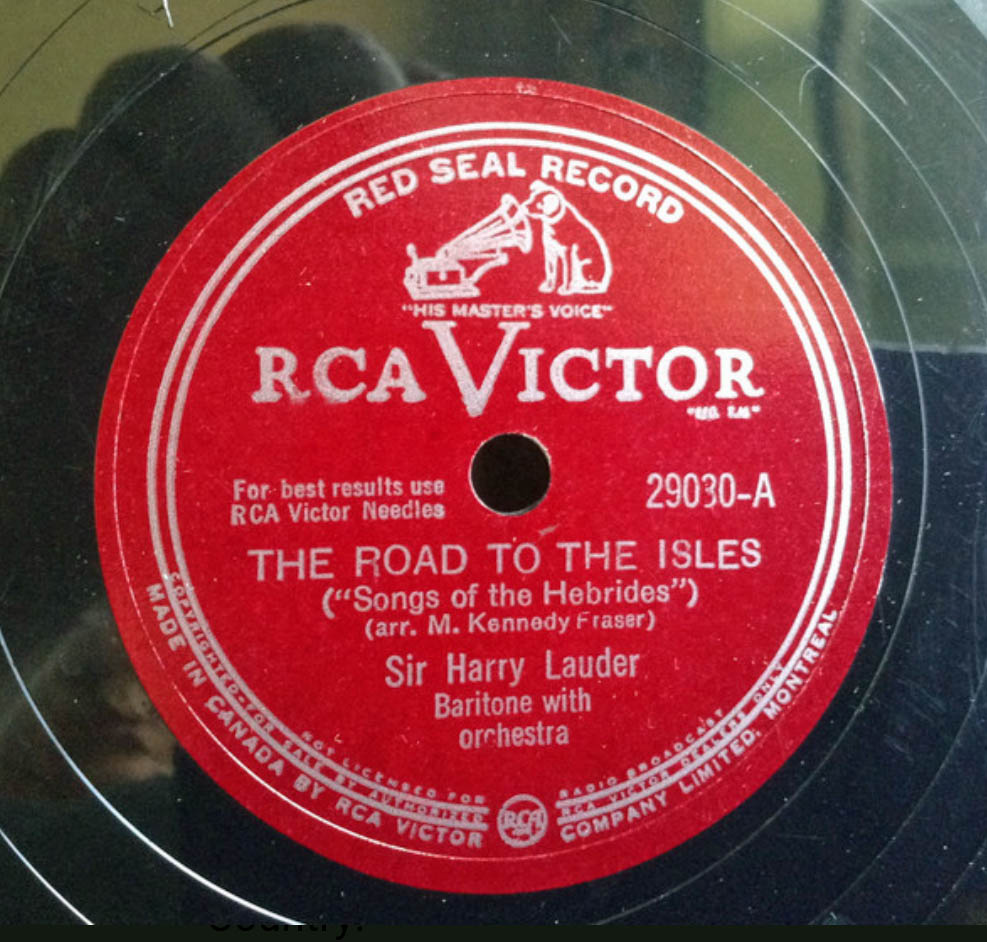
But, like all composers, McLellan would only receive the residuals due to him if he or his publisher properly registered his music with the Performing Right Society (PRS) and the Mechanical Copyright Licences Company (Mecolico) in the UK at that time. (The organizations are now known as PRS for Music and MCPS.)
Provided legal licenses were paid, and details reported, for the performances and reproductions, PRS and MCPS would administer the funds, match performances to the owners, and distribute them to creators like McLellan.
In Jock McLellan’s case, these amounts would have been substantial, and royalty payments should have been made to McLellan’s estate until 2019, 70 years after his death – again, only if the compositions were registered adequately with PRS and MCPS.
Pipe music and drum score composers should always become members of the copyright collective in their home country. Membership is usually free. These collectives, such as BMI ASCAP in the USA, SOCAN and Re:Sound in Canada, and APRA AMCOS in Australia and New Zealand, will do the otherwise impossible work of collecting licenses, matching performances to owners, and paying out royalties, whether $5 or $5-million.
If composers don’t do that, the orphaned unmatchable money they have legally and rightfully earned will eventually be paid to pop stars.
Equally important, if piping, drumming, and pipe band competitions and concerts do not pay the legally required licenses for the use of copyrighted music in a public performance, not only are they risking huge fines, but they’re ripping off the creators who deserve the share that they have rightfully earned.
Incidentally, one does not need to note “copyright” on a manuscript. Copyright is legally established the moment the piece is created. The registration and administration are the essential aspects of receiving earned royalties.
Once again, thanks to Duggy McGregor for his help with this important history-making feature. Be sure to visit MacGregor’s website dedicated to Jock McLellan’s life, times, and tunes.


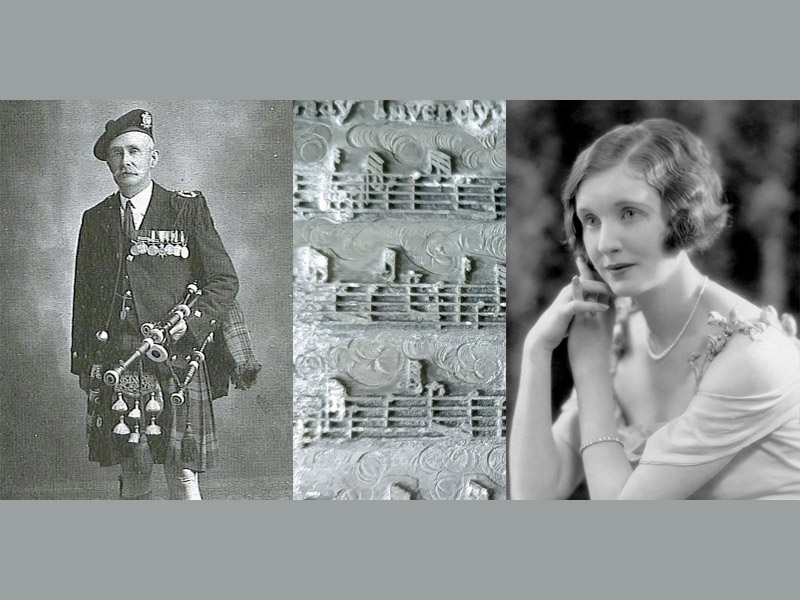
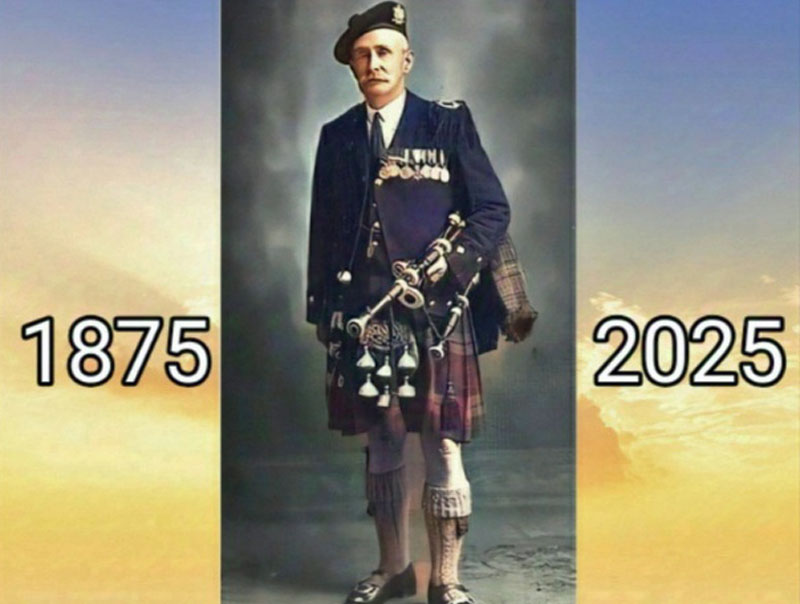
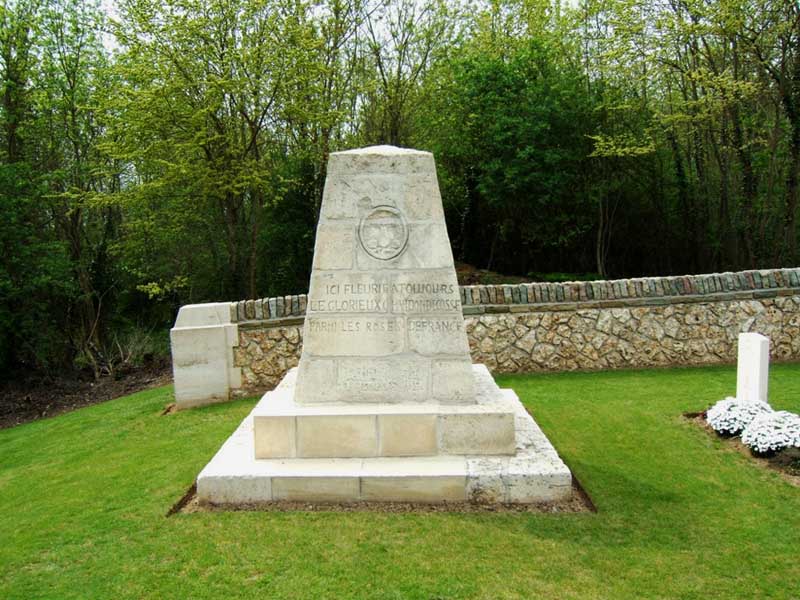

NO COMMENTS YET